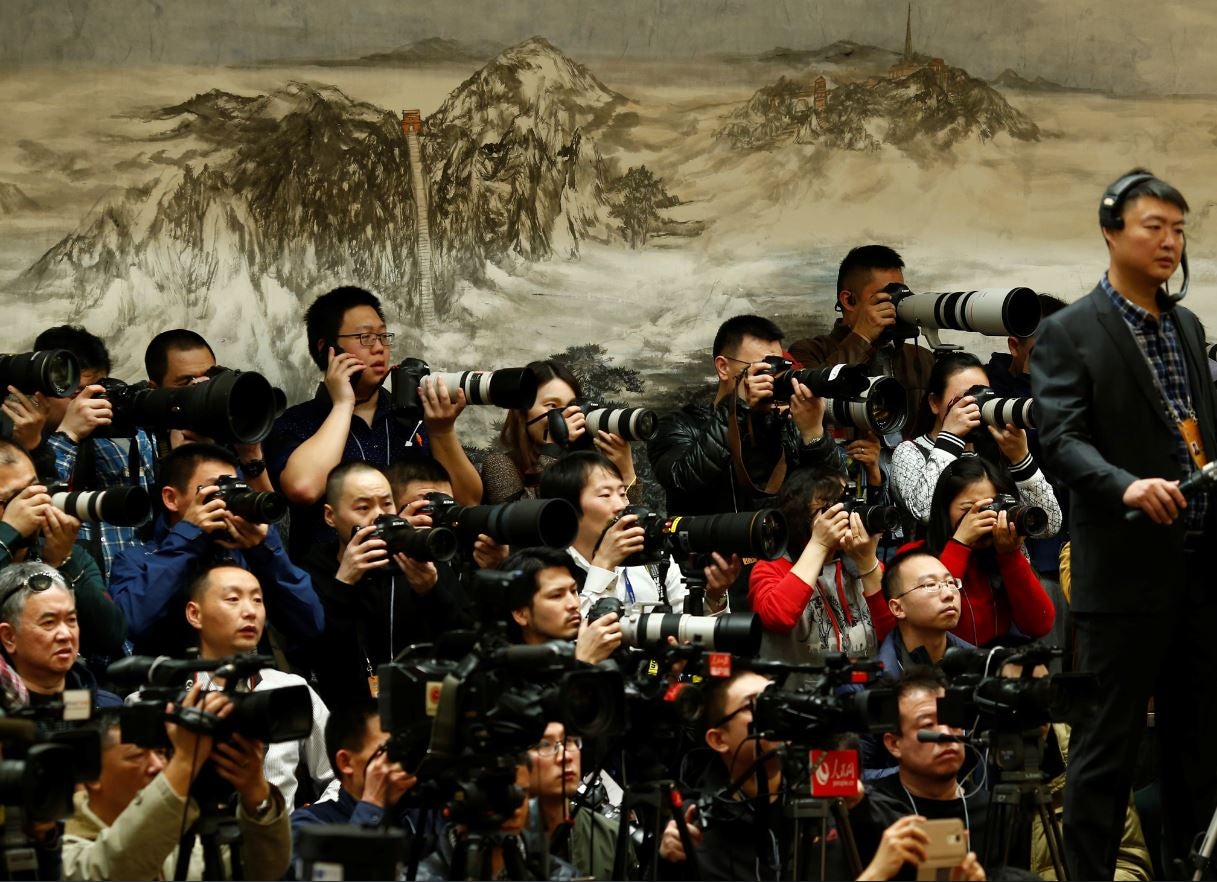
On April 28, the Chinese government sent out a message to the media. It begins, “Find and delete the article…” The piece in question included quotes by a high-ranking state official commenting on President Trump’s recent tax plan. Within the country, the link to the story now brings up “Network Error”.
Working as a journalist in China has never been so prescriptive.
Organisations like the Central Propaganda Department and the Cyberspace Administration of China constantly send out orders and bans instructing media, web portals and social media platforms to:
- remove certain content
- minimize the visibility of certain content
- to block journalists from reporting on a story
- or to only use copy from the official Xinhua News Agency.
David Schlesinger is the former Chairman of Thomson Reuters China. He said: “For domestic journalists there is a long and constantly updated list of instructions – there are the obvious red line issues, Taiwan independence, Tibet, Falun Gong, primacy of the communist party and then daily directives. Don’t report on the abduction of billionaire from Hong Kong for example.”
Schlesinger believes this control is creating a real inner tension with some highly qualified, principled, journalists, trained both in China and the West, by them not being able to report the way they want to.
If the instructions are flouted, Chinese reporters can be fined, demoted, fired or even imprisoned.
On 24 April, 2016, independent journalist Ms Wang Jing was sentenced to four years and ten months in prison by a court in Jilin City on charges of “picking quarrels and stirring up trouble”.
David Bandurski is an editor at the China Media Project at the University of Hong Kong. He said: “The government urge the media to stress a certain issue or event. It is about massaging and manufacturing public opinion, not just about removing things. Using the word censorship causes us to think in a very reductive way about what China is doing.”
Historically speaking, domestic public opinion is the focus, and the Party will do its utmost to ensure an “emphasis on positive news”, – an actual term used by propaganda authorities.
Since the crackdown on pro-democracy demonstrations in 1989, which hardline leaders saw as stemming in large part from a failure of press policy, the Party has used the phrase “guidance of public opinion” (舆论导向) to describe the larger goal of information control. Essentially, it is the idea that control of the media equals stability and enables the manufacture of legitimacy. So a lot is at stake from the Party’s point of view.
All career journalists in China must take a two-hour test in order to get the “The People’s Republic of news gathering qualification training certificate” (中华人民共和国新闻采编从业资格培训合格证).
The training certificate allows journalists to apply for a press card, which in turn can grant more access to conferences, events and important meetings.
The test does not cover journalistic skills such as reporting, interviewing or shorthand. The compulsory five-day training prior to the test involves listening to university lecturers speak on Marxism, journalism ethics and socialism with Chinese characteristics.
Entrants are given thick books with hundreds of sample questions and theories to memorize. One of the example questions from “Journalists Training Materials” (新闻记者培训教材) (2013) asks:
“Why is it that supervising for the Chinese communist party and the government is Chinese journalists’ professional requirement? Which one of the below statements is incorrect?
- Journalists are their mirror.
- A journalist in an uncrowned king.
- Journalists function as the government and the party’s ears and eyes, and journalists are required to pass on all kinds of information to them.
- To prevent black sheep in the party and the government from doing bad things.”
The answer is B. The textbook doesn’t offer a reason as to why “A journalist is an uncrowned king” is correct. For a Chinese person – educated using a government-vetted syllabus – there is little need for an explanation.
On the other hand, there isn’t actual censorship of foreign media.
“These days, foreign correspondents write what they want, and pretty much go where they want. China, if it is unhappy, shows its displeasure by withholding or canceling visas or by taking business actions against the offending journalist’s firm,” says Schlesinger.
Yet this approach has had a psychological impact on both domestic and foreign journalists. These post-publication actions can be serious and, of course, have a disturbing consequence: self-censorship. A journalist might hold back or avoid a particular story to keep from triggering a response.
Chinese society has moved into an era of self-censorship where people themselves automatically “purify” the internet environment. There are too many interests at risk to attack the CCP online. You could lose your job or you may be “forced to drink tea” (请去喝茶), meaning you’ll be called to have a chat with security officials.
“That’s actually a pernicious and really dangerous mindset that is easy to fall into,” say Schlesinger. It’s dangerous because self-censorship is one step away from what George Orwell’s called ‘crimestop’.
“The mind should develop a blind spot whenever a dangerous thought presented itself. The process should be automatic, instinctive. Crimestop, they called it in Newspeak,” explained Winston Smith in 1984.
The whole dilemma raises a moral conundrum: how do journalists working in China uphold ideals and enact them in repressive situations?
Yet there certainly are Chinese journalists who see themselves working in the public interest against the role defined for them by the CCP. For many, being a journalist is defined by two questions: which story should be pushed and how easy will it be to hide before a paper goes to press.
There is an art to operating as a journalist in China, and it goes far beyond the story itself.
Email pged@pressgazette.co.uk to point out mistakes, provide story tips or send in a letter for publication on our "Letters Page" blog
